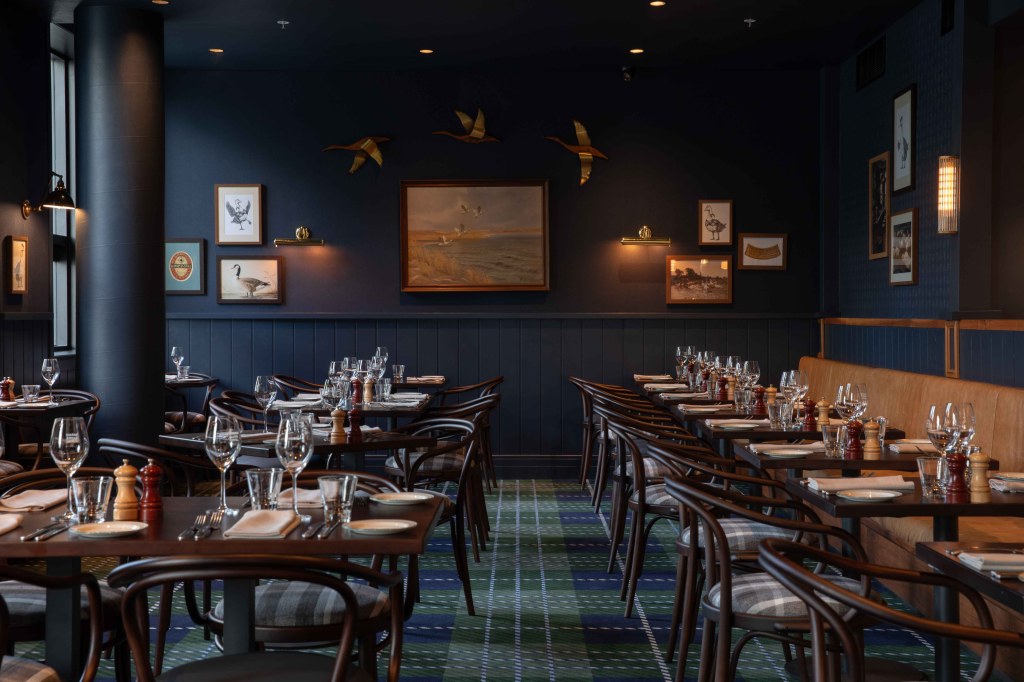For a long time, Robert Clifford’s connection to the Irish business and social community was personal. He served as the president of the Irish Australia Chamber of Commerce and later became the treasurer of The Celtic Club.
The club’s committee then approached Clifford’s food and beverage consultancy firm, Alto Cibum, to develop a new business plan to sustain the club’s future. It also included helping the club secure a new home, renovating the space, and setting up operations at the new site.
When it came time to appoint someone in charge, the committee turned to Clifford.
“They basically said, ‘Rob, will you stay on as the CEO?’”
Since officially taking on the role in January, Clifford has been tasked with preserving the club’s cultural heritage while ensuring its financial viability.
A turn of events
Established in 1887 in Melbourne, the long-running Irish social and cultural club has spent the last eight years moving around the city after selling its Victorian-era building on Queen Street in 2016 to property developer Beulah for $25.6 million. It had been the club’s home since 1959.

Why the sale? “The old club was asset-rich but cash-poor,” Clifford said frankly.
“The old venue needed a lot of work, and they didn’t have the cash. They were reliant on gaming. Because they hadn’t invested in gaming – gaming is good, but you have to keep investing in it, otherwise, it becomes stale – their gaming revenue had tapered off to a minimum.
“Overall, because they didn’t pay a lease, they didn’t need much money to keep going, but the lift was failing, and the space needed this and that, so some could say that was one of the reasons why they sold the heir rights to Beulah.”
The sale of the Queen Street property reportedly prompted a period of bitter in-fighting and factionalism between committee members. It wasn’t until a new committee was established, led by former Australian of the Year and Nobel Prize winner Patrick McGorry, that peace was restored.
“Any committee-driven organisation needs a committee with an aligned vision. Once you can get that, you can actually achieve things. Without that, it’s very hard to go forward.”
Following the sale, the theory was to use the funds to purchase another venue.
“We sort of did that,” he said.
The year after the sale, The Celtic Club took a leasehold of The Metropolitan Hotel in North Melbourne, reportedly costing the club millions in rent. In 2021, The Celtic Club purchased the Limerick Arms Hotel in South Melbourne for $5.3 million as an investment to help generate income and secure the financial health of the club. However, the site was unsuitable for the club to call home.
“It had a very long lease, and it was very small,” Clifford said.
New beginnings
The Celtic Club has now settled on the 170-year-old Sarah Sands Hotel in Brunswick as its permanent watering hole and clubhouse. The club’s doors formally opened in the first week of March, in time for St Patrick’s Day.
The historic corner pub has had a storied history since its establishment in 1854, from the popular ‘six o’clock swill’ house in the 1950s to an adult club in the 1980s. It was also coincidentally an Irish pub known as Birdie O’Reillys that operated in the 1990s and early 2000s until it was bought by developers Peregrine Projects in 2015 for $6 million. The hotel ceased trading in early 2017.
In 2019, hospitality group Australian Venue Co (AVC) spent nearly $3 million on a sleek facelift before putting it on the market in 2022. Clifford said when the 500-person venue was leased by AVC, “they put a beach pub in Brunswick. It was misaligned from a market point of view. It was very light, airy, and very white – everything that Brunswick is not.”
Taking those learnings into consideration, the club knew it had to create a venue that appealed to both members and the local community.

The result is a ground-floor venue open to the public featuring a bar and bistro called The Wild Geese – a term used to describe the story of the Irish military diaspora – helmed by chef John Paul Dargan, who is from Belfast; and a second floor with a dedicated members lounge.
“Our brief to the designers was to create a venue that’s not kitsch Irish. It was to be a sophisticated Irish, and to create a warm pub that also recognises that we’re in Brunswick,” he said.
“It’s been very well received by our members and by locals.”
This is an extract of a story featured in Club Management Spring. Read the article in full here.



